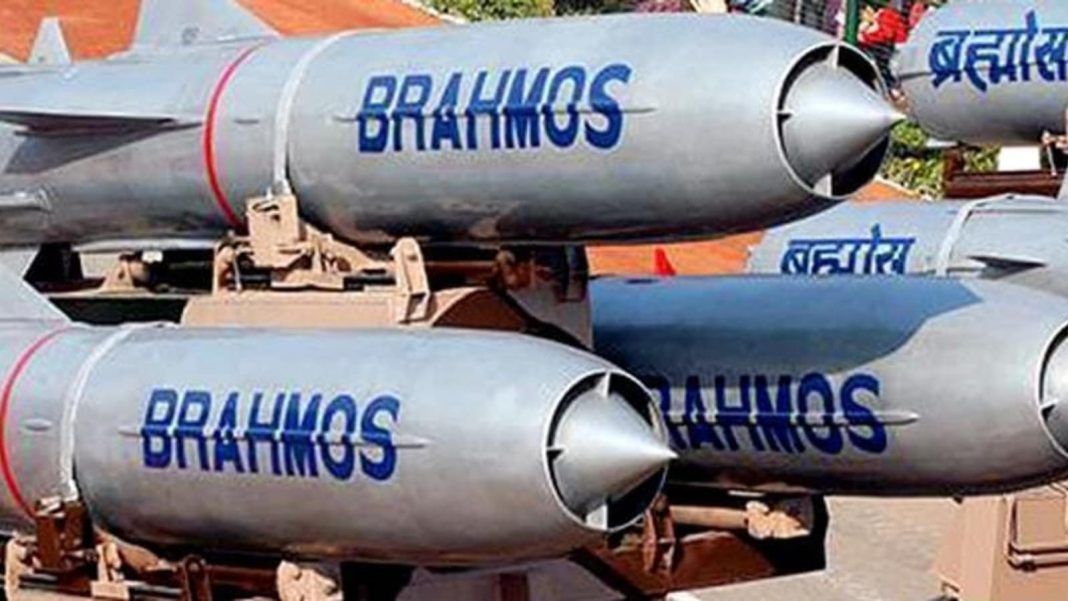Global Interest in BrahMos Supersonic Cruise Missiles
The BrahMos supersonic cruise missile, a product of collaboration between India and Russia, has seen a surge in global demand, marking a significant milestone in defense exports. Currently operational in the Indian Armed Forces, this missile system has proven its worth through precision strikes and versatile capabilities. These features have caught the attention of international buyers, including Vietnam, Indonesia, and the United Arab Emirates (UAE). Discussions with these nations for potential contracts are already underway, signifying their interest in adopting the missile system for their defense needs.
The BrahMos missile has already achieved its first international sale, with the Philippines becoming its inaugural buyer. In January 2022, the Southeast Asian nation secured a contract worth $375 million for three batteries of the shore-based anti-ship variant. Earlier this year, the Philippines received its first batch of missiles, demonstrating India’s capability to deliver cutting-edge defense technology globally.
India’s government has actively positioned the BrahMos missile as the “precision-strike weapon of choice” in line with its broader goal of emerging as a leading defense exporter. A list of “friendly nations” has been identified as potential buyers, initially including countries like Indonesia, Vietnam, the UAE, and South Africa. This list has since expanded to feature Algeria, Greece, and Malaysia. Delegations from other countries, such as South Korea, Egypt, and Thailand, have also shown interest in acquiring the system.
Shifting Global Defense Partnerships and the Role of BrahMos
The global defense landscape is undergoing significant changes, creating opportunities for countries like India to establish themselves as reliable suppliers of advanced weapon systems. Traditional arms-exporting nations, including Russia and the United States, have been stretched thin due to their involvement in conflicts. For instance, Russia’s ongoing conflict in Ukraine has highlighted the risks of over-relying on a single supplier. This has driven many nations to diversify their defense procurement strategies and explore partnerships with new suppliers.
The UAE, a nation known for its dependence on Western arms manufacturers, has also shifted its procurement policies. This move comes in response to stricter export controls imposed by Western nations and growing concerns over evolving aerial threats. In search of more flexible terms, the UAE has turned to alternative suppliers like China, Turkey, and South Korea. These countries have successfully offered competitive defense solutions, challenging the dominance of traditional suppliers.
For example, the UAE opted for Chinese Wing Loong II drones over the U.S.-made MQ-9 Reaper drones due to fewer restrictions. Similarly, South Korea has emerged as a trusted supplier, providing the UAE with its K-239 Chunmoo multiple-launch rocket systems (MLRS) through an $800 million deal. These systems have proven to be cost-effective and tactically efficient, making them attractive alternatives to Western systems like the U.S.-made HIMARS.
Expanding Defense Markets in the Middle East
India’s BrahMos missile has also garnered attention from Saudi Arabia, a key Middle Eastern player. Traditionally reliant on the United States for over 70% of its defense equipment, Saudi Arabia is now actively diversifying its supplier base. This shift aligns with its Vision 2030 plan, which emphasizes reducing dependence on foreign suppliers and bolstering domestic defense manufacturing.
Recent deals between Saudi Arabia and Turkey have further reshaped the region’s defense dynamics. In August 2023, the two nations signed a landmark $3 billion agreement for Saudi Arabia to acquire AKINCI unmanned combat aerial vehicles (UCAVs) from Turkey. The agreement also includes provisions for joint production and technology transfer. In addition, Saudi Arabia has signed a $120 million deal with Turkey’s Ramsa Defence to establish weapons-manufacturing facilities within its borders.
These developments underscore Saudi Arabia’s intent to build a robust defense manufacturing ecosystem while reducing its reliance on traditional suppliers. The kingdom has also expressed interest in advanced technology initiatives, such as participating in the Global Combat Air Program (GCAP). This program, a collaborative effort between Italy, Britain, and Japan, aims to develop next-generation fighter jets by the mid-2030s. Saudi Arabia’s involvement signals its ambition to secure a place in future defense innovations.
India’s ongoing discussions with nations like Vietnam, Indonesia, and the UAE, combined with its strategic positioning in the evolving global defense market, highlight the growing recognition of the BrahMos missile system as a formidable and versatile weapon. These international contracts not only enhance India’s defense export portfolio but also contribute to strengthening strategic partnerships worldwide.





